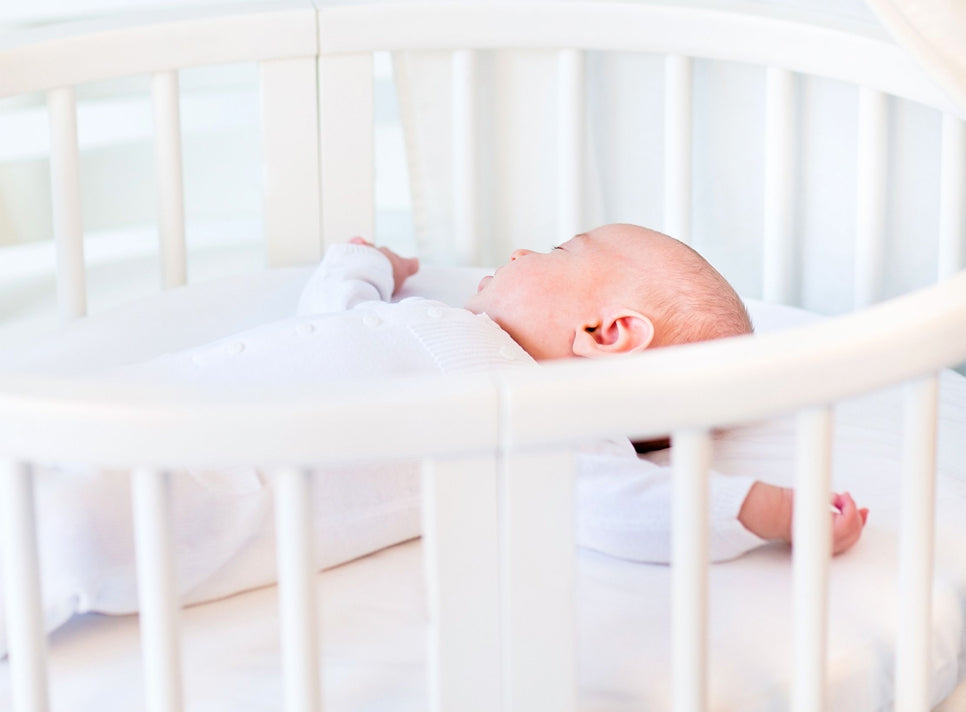At how many months the first dreams?

Watching a sleeping baby is a wonderful experience. But what goes on behind those closed little eyes?
The more one studies this question, the more one discovers that newborns are great dreamers.
As early as the seventh month of gestation, the foetus experiences increasingly regular periods of quiet sleep, which can last five to ten minutes, in which it remains motionless or with very little motility.
These are followed by moments of wakefulness and, above all, periods of restless sleep with frequent movements. The latter condition bears an extraordinary resemblance to so-called 'REM sleep' (from rapid eye movements), the state in which we know that dreams intervene in older children or adults.
In the 1980s, some researchers put forward the fascinating hypothesis that, while in a phase of agitated sleep, the foetus experiences some form of mental life, re-processing the sensations arising from its own movement, and that memory traces of these processes may remain in future life [Mancia, 1982].
Contemporary studies seem to show that children begin to dream even before birth. Dr. Alan Greene, author of 'From First Kicks to First Steps' explains:
"Babies dream more on the first day of life than at any later time and dream even more before they are born. Throughout the third trimester of gestation, babies sleep most of the time and dream most of the time, dreaming about the things they are experiencing through their visual, auditory and gustatory perceptions. They hear what is happening in the world around them, form a memory of it, and can turn it into dream content."
Professor Allan Hobson, professor of psychiatry at Harvard Medical School, who explained to those present during a recent conference in Venice entitled 'The future of the science', that man begins to dream already in the womb, is in the same line of thought.
Already after eight weeks of gestation, in parallel with the development of the ocular activation system, the foetus would begin its dream activity, enabling it to come into the world with a sort of 'preparation' for what it will have to face as it grows up. In fact, after some experiments, Professor Hobson examined how in infants the REM phase is up to 4 times longer than in adults (in whom it is 15-20% of sleep), occupying some 82-90% of total sleep.
In premature infants, the REM phase would be a further 5 per cent longer. Infant sleep is crucial in the development of primary consciousness, which we also share with other mammals and birds, who dream like us, and which enables us to build and come into the world with a kind of 'map of reality'.
The more one studies this question, the more one discovers that newborns are great dreamers.
As early as the seventh month of gestation, the foetus experiences increasingly regular periods of quiet sleep, which can last five to ten minutes, in which it remains motionless or with very little motility.
These are followed by moments of wakefulness and, above all, periods of restless sleep with frequent movements. The latter condition bears an extraordinary resemblance to so-called 'REM sleep' (from rapid eye movements), the state in which we know that dreams intervene in older children or adults.
In the 1980s, some researchers put forward the fascinating hypothesis that, while in a phase of agitated sleep, the foetus experiences some form of mental life, re-processing the sensations arising from its own movement, and that memory traces of these processes may remain in future life [Mancia, 1982].
Contemporary studies seem to show that children begin to dream even before birth. Dr. Alan Greene, author of 'From First Kicks to First Steps' explains:
"Babies dream more on the first day of life than at any later time and dream even more before they are born. Throughout the third trimester of gestation, babies sleep most of the time and dream most of the time, dreaming about the things they are experiencing through their visual, auditory and gustatory perceptions. They hear what is happening in the world around them, form a memory of it, and can turn it into dream content."
Professor Allan Hobson, professor of psychiatry at Harvard Medical School, who explained to those present during a recent conference in Venice entitled 'The future of the science', that man begins to dream already in the womb, is in the same line of thought.
Already after eight weeks of gestation, in parallel with the development of the ocular activation system, the foetus would begin its dream activity, enabling it to come into the world with a sort of 'preparation' for what it will have to face as it grows up. In fact, after some experiments, Professor Hobson examined how in infants the REM phase is up to 4 times longer than in adults (in whom it is 15-20% of sleep), occupying some 82-90% of total sleep.
In premature infants, the REM phase would be a further 5 per cent longer. Infant sleep is crucial in the development of primary consciousness, which we also share with other mammals and birds, who dream like us, and which enables us to build and come into the world with a kind of 'map of reality'.





